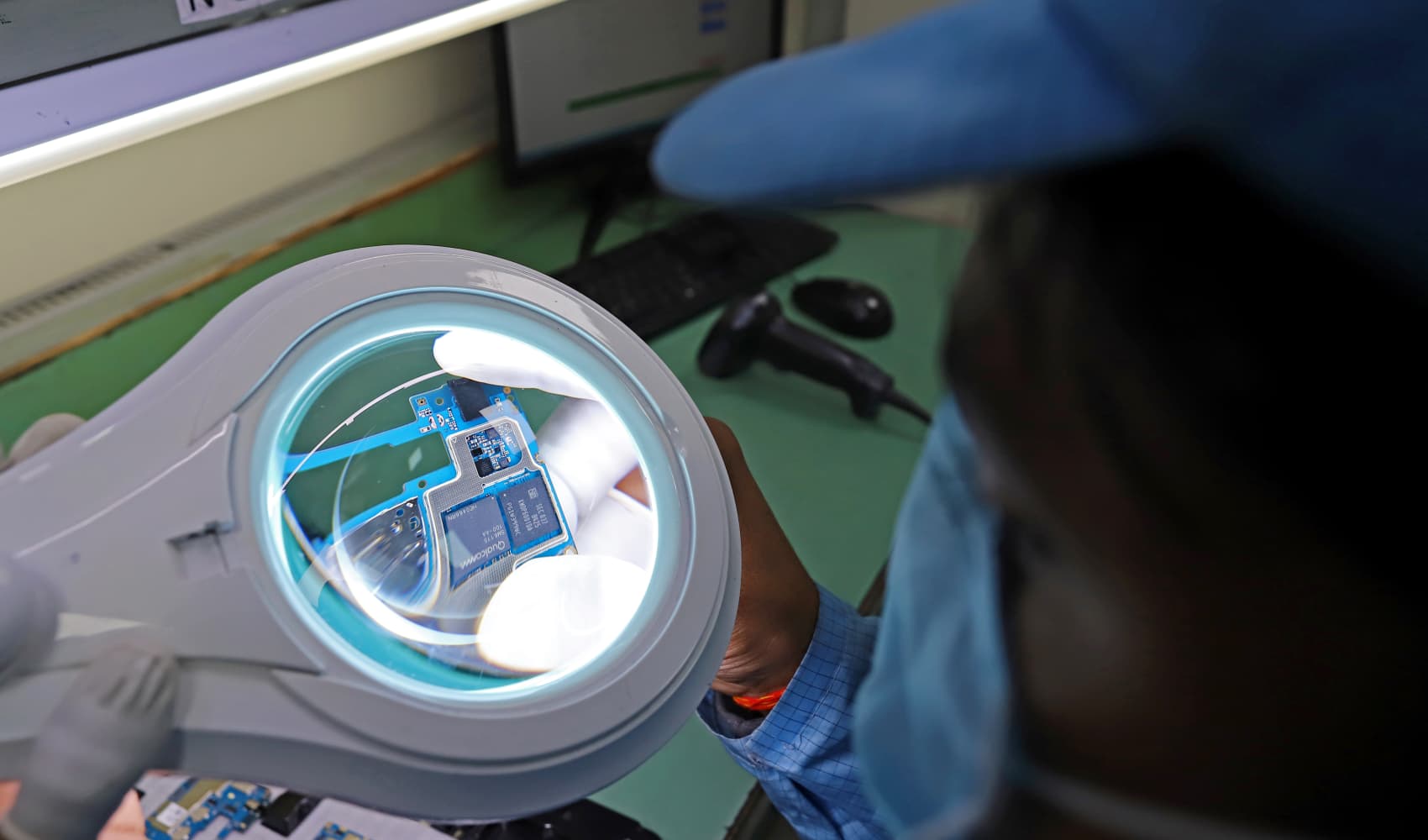
As the coronavirus pandemic has upended lives around the world, office professionals who've been sent to work from home for the foreseeable future have adjusted to a new way of living and working. For many, coworkers offer support and connection when it's never been more crucial to make sense of stressful times.
If there's a positive side to how the pandemic could change the workplace, it's that being vulnerable with colleagues during tough times could lead to stronger relationships and a better work experience overall.
CNBC Make It spoke with workplace experts to examine how that could unfold.
'We're all the BBC dad now': Coworkers could become closer, better workers
Colleagues who've moved interactions to video have essentially fast-tracked their ability to build trust, says Nadjia Yousif, managing director and partner of Boston Consulting Group's London office.
When you're able to pick up on non-verbal cues, or you're invited into a colleague's personal space, you form a deeper sense of intimacy much faster than you would in a traditional working environment, Yousif says. "This creates the space for psychological safety to happen more quickly."
"People are doing virtual home tours, people's kids are popping into webcam conversations — we're all the BBC dad now," says organizational psychologist, Wharton professor and "Originals" author Adam Grant.
Money Report
Indeed, even those embarrassing moments with technology can help humanize colleagues and bring them closer together. Because of that, people may relax the boundaries they normally create around their home and their work lives, Grant adds, "and they can have really great connections with colleagues."
When coworkers trust each other, they're more vocal, contribute more ideas, work collaboratively and can reach better solutions.
In-person interactions will take on new meaning
While videos have temporarily filled the social void, they've also highlighted that the nuances of relationship-building can get lost in virtual spaces.
"In general, there's much more 'forced fun' going on these days," Yousif says of activities like virtual happy hours that have become the default way to socialize. "It is all scheduled and predetermined."
The downside to not having everyone in one office is that you miss out on random connections and chance meetings, she adds. "You can do many virtual coffees, but it doesn't replace the real water cooler."
"For a long time, we've probably taken for granted the ability to see our coworkers every day and maybe didn't realize how valuable that was," says Lakshmi Rengarajan, a workplace connection consultant formerly of WeWork and Match.com. "I think teams will be a lot closer when they're able to move back into the workplace."
Grant expects when coworkers return to the office following the pandemic, they'll ditch previous messaging habits and actually get up, walk around and visit with each other in-person.
"There will probably be fewer sad desk lunches," he adds.
Work will come home, and vice versa
People may also be willing to bring their work lives home, in a social sense.
"Americans are pretty bad at workplace friendships compared to many countries around world," Grant says, referring to surveys about how colleagues interact outside the workplace in three different countries.
According to the research, 32% of American workers reported inviting their closest colleagues to their homes, compared with 66% in Poland and 71% in India. Just 6% of Americans reported vacationing with colleagues, versus 25% of Polish and 45% of Indian workers.
"A lot of people feel the need to check their personal life at office door and be completely professional and productive and efficient in the office," Grant says. This could make it harder to form strong relationships at the office, even though research suggests people are happier with their jobs when they have a friend at work.
Following the pandemic, "I think that will change," Grant continues, "in part because people are craving more connection. And also because the doors are open a little bit more now."
But some relationships could be harder to build
While immediate teams might be closer following the pandemic, it could be harder to form relationships with new colleagues or casual workplace acquaintances.
This will be a bigger issue if wearing a face mask around the office becomes the new norm, as some experts predict.
"We make our best connections face to face," Grant says. "If you can't see part of someone's face, it may feel like they're hiding something, even if they're not, because we feel like we're missing some important visual cues. When we're wearing face masks, it's a constant reminder for us to keep distance, which could lead us to be a little more guarded in how we converse with other people."
Not to mention, handshakes are likely on their way out. White House advisor Dr. Anthony Fauci recently advised that handshaking needs to stop even when pandemic ends, and other health experts agree.
That said, Grant cautions that human ingenuity shouldn't be underestimated, and that people will learn to adapt. Gestures that can convey friendliness and respect from a distance, such as a nod or smile, could become the social norm, says Rengarajan: "Maybe it's the rise of eye contact or listening."
As more people continue to work remotely on a full or partial basis, managers will have to be especially cognizant of how they bring on new team members, says Christine Porath, management professor at Georgetown University's McDonough School of Business.
"They're going to have to work that much harder to establish [connection] when they may be relegated to these forms of virtual communications, rather than in-person or at off-sites or retreats," Porath says.
Workers and managers alike will need to more vocal about communication and work styles, setting expectations, and sharing feedback in general, since they won't be able to drop by each other's spaces to check in, Rengarajan says.
As companies hire new team members virtually, they might revisit the onboarding process and make it more efficient, Yousif adds. Organizations will have to be more clear explaining who does what, where to go for certain resources and how things are done, so new team members can get up to speed from day one.
Check out: The best credit cards of 2021 could earn you over $1,000 in 5 years
Don't miss:






